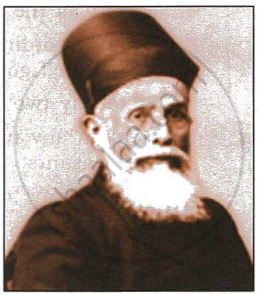Advertisements
Advertisements
Question
Discuss the political goals of Surendranath Banerjee.
Solution
Surendranath Banerjee founded the Indian Association in 1876. He was a great intellectual and the first Indian who passed the Indian Civil Services competitive examination. Due to British discrimination he was rejected on a very flimsy ground. This was a shock to him but at the same time it filled in him the spirit of nationalism. He decided to educate the Indians about the discriminatory attitude of the English towards the Indians. His political goal encouraged him to start an English daily newspaper under the name, ‘The Bengali’. He was a man of talents. He was a first class journalist, a narrator and educationist. All these qualities helped him to achieve his goal of spreading nationalism among people. He forcefully protested the repressive measures of the British Government. He opposed the Vernacular Press Act, the Arms Act And the treatment of the English towards the Indian workers in tea and indigo plantations. He achieved some success towards his political goal.
APPEARS IN
RELATED QUESTIONS
When was the Servants of Indian Society founded? Who was its founder?
Or
Who founded the servants of Indian Society?
State two policies of the British which were opposed by Gokhale.
Mention two contributions of Dadabhai Naoroji to the National Movement.
Mention the achievement of Dadabhai Naoroji in strengthening Indian nationalism.
Discuss in brief about the organization, established by Gopal Krishna Gokhale to educate and to arouse national awakening among the people.
Identify the Early Nationalist leader.
Dadabhai Naoroji is also known as ______.
Picture Study

- Identify the person in the picture and state what he is popularly known as.
- His achievement in strengthening Indian nationalism.
- His views on the cause of poverty in India.
Surendranath Banerjee's was popularly known as the father of Indian Nationalism. In this context, answer the following questions:
- Trace his contribution towards the formation of the Indian National Congress.
- What was India's political goal, according to him? What were the methods he advocated to attain it?
- What was his contribution to India's freedom struggle?
Imagine that you got a chance to interview one of the Early Nationalist leaders. On the basis of interview, express your views on the Early Nationalist leader's beliefs as well as the methods used by him.
